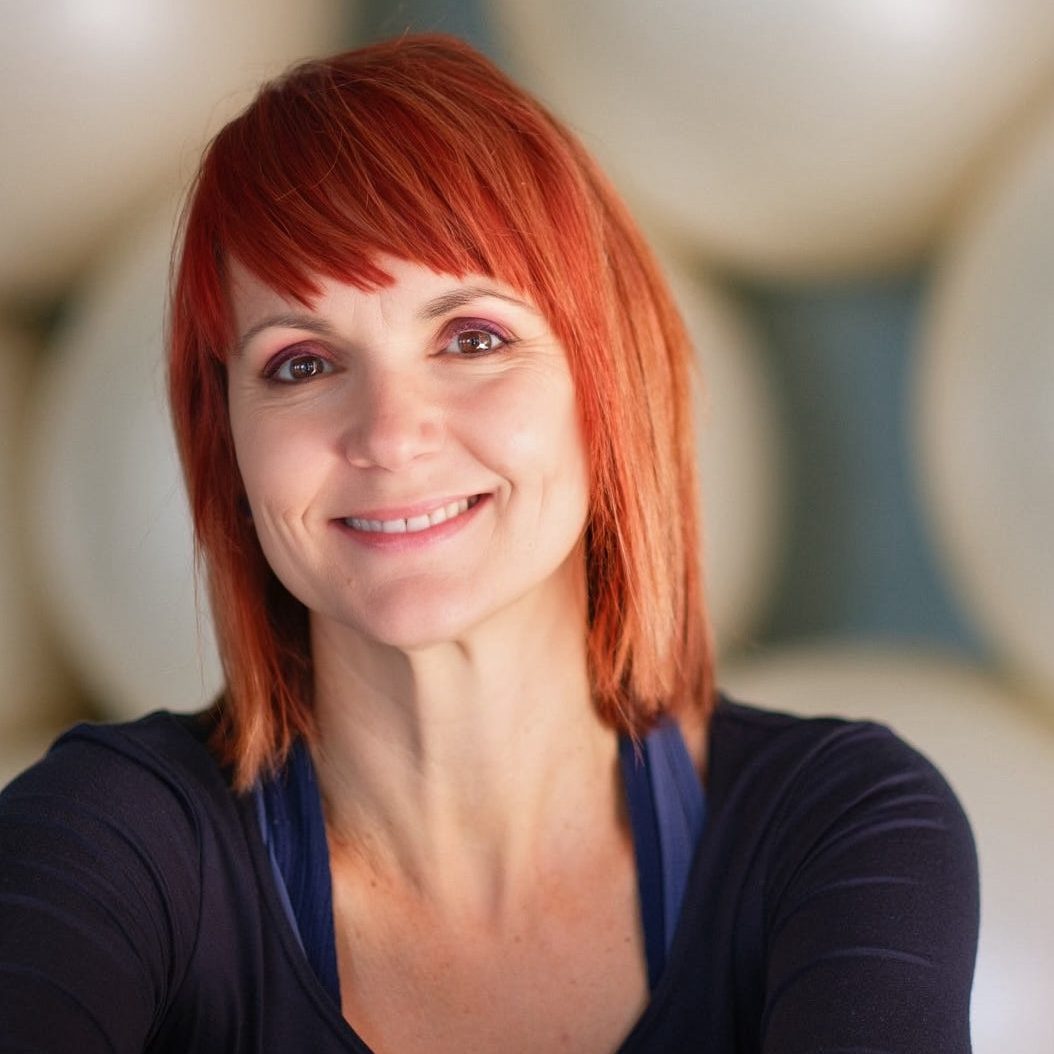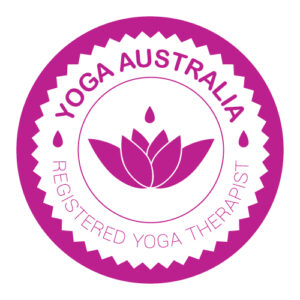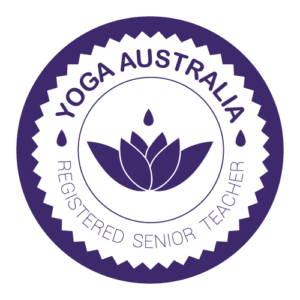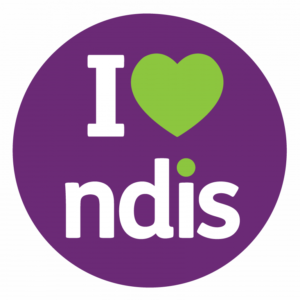Tanaya Ti'en Yoga Therapy

"The last 4 months of Yoga therapy with Tanaya have been life changing for me. I can do all the things that used to cause me pain - like lift weights at the gym, or do a day’s work - and not wake up in pain anymore. I feel so much freer in my body. I don’t have the lower back pain anymore that I had been suffering with for many years. I just feel amazing!"
Matt (36)
“When Tanaya first introduced me to Yoga therapy, it was hard to grasp how it differed from a regular yoga class. I questioned the likelihood of it being able to shift the chronic anxiety and the unproductive thought patterns I was dealing with. But after only a few sessions, I was feeling so much better. Tanaya gave me practical techniques to take away each session for home practice, which has helped me to better manage my anxiety and stress levels in the moment as it unfolds. I can honestly say this therapy has been profoundly life changing for me. ”
Jase (35)
“I feel like I gained more after five sessions with Tanaya than I gained in five years of other types of therapy. After each session I walk away with very helpful tools that I can use whenever I’m feeling anxious or down.”
Piper (19)
“I first approached Tanaya for a physical ailment that I had been struggling with for some time. Before the Yoga therapy I didn’t realise there had been so much going on inside of me that wasn’t just physical. Through a series of personalised practices the Yoga therapy decrypted my internal mess, and as a result my physical symptoms slowly but surely dissipated. The process of the Yoga therapy helped to shine a light on old emotions that I had been suppressing for some time. The therapy helped me work through this by addressing the root cause of my symptoms. Ten weeks ago I walked in with chronic migraines and after ten sessions it has been some weeks since I have had a migraine!”
Sam (46)
"I struggled with menopausal symptoms for several years. After having seen many doctors and hormone specialists, I was introduced to Tanaya and Yoga therapy. Having not done much yoga in the past I was reluctant at first as I wasn't sure my body was up for it. I was relieved to discover that Yoga therapy isn’t like a regular yoga class. The sessions were tailored specifically for me and my physical capacity. I especially loved the breath and vocal practices where we used breath techniques and mantra for rebalancing. I found it very helpful for the brain fog and anxiety I was experiencing. After ten sessions with Tanaya I am finding I have ample tools now to better manage my symptoms.”
Pat (49)
“Just over 12 months ago I attended a Yoga Retreat in Denmark, WA, ran by Tanaya, which led me to exploring “Yoga Therapy." I completed my 10 week Yoga Therapy journey with Tanaya late last year and a few of my friends have asked “What’s Yoga Therapy”? It’s so hard to put into words, “very powerful” comes to mind. One’s mind needs to be open to receive and accept, and I found my journey over the ten weeks to be “enlightening”. There is not a day goes by that I don’t revisit some of the mindfulness practices, and my journey will continue to grow over time. Tanaya herself … so caring yet focused on good outcomes for your journey. A big thanks to Tanaya and I look forward to more retreats in the future.”
Kerrie (59)
"I first came to Tanaya with weight management issues. I have struggled with my weight my whole life, and when I first met Tanaya I was 20kg overweight. Over the course of a lengthy consultation process and ten sessions of yoga therapy spread out over 6 months, with Tanaya's guidance I was able to develop a sustainable regime that included dietary and lifestyle choices specific to my "constitution". I dropped 10kg in 6 months and am feeling better than I have in a long time. It's very hard to explain how the yoga therapy works, but I feel like I am getting my confidence, and my life back!"
Rose (42)
“I had absolutely no idea what to expect from yoga therapy, as I’m not by any means a ‘yoga buff’. I came away from my 4 weeks with Tanaya so pleasantly surprised and at ease. Tanaya helped me work through underlying anxieties and gave me skills to use for a lifetime. My advice to anyone would be just give it a go. Yoga therapy is unique and helped me in small ways that have added up to big changes.”
Cassidy (27)
“Yoga therapy treats the whole person, seeking to change the attitudes and actions that inhibit the healing process, and cultivate the attitudes and actions that support it.” Gary Kraftsow
What is Yoga Therapy?
Yoga Therapy (YT) is a tailored approach to wellbeing incorporating the 5000 year old science of yoga.
As a therapeutic practice, YT dates back to the dawn of yoga itself, however, its modality - in a clinical setting - is very much an untapped goldmine here in the West. But, with more and more evidence-based research popping out of the woodwork within the yoga, science, and medical communities, YT is slowly but surely rising up into the forefront of complementary therapies.
The process of YT involves an in-depth inquiry into the whole person (body, mind, spirit), and includes a personalised assessment, goal setting, and specific practices that aim to still the mind, and empower individuals to be active participants in the management of their overall wellbeing, recovery, and/or rehabilitation. The results of this in-depth inquiry are used to generate a detailed picture of a person’s yogic constitution which can be used to help understand physical and metaphysical areas of imbalance, under-activity and over-activity. This information can then be used to help guide advice and develop a treatment program specific to each individual’s unique needs and circumstances. YT may not involve yoga postures in a traditional sense if they are not suited to the individual, and instead draw upon other yogic practices including yoga ethics, pranayama (breath and energy expansion techniques), mantra, meditation, dietary and lifestyle practices. Thus, Yoga therapy is really for everyone and anyone, regardless of a person's physical capacity.
One of the great yoga masters of our time, TKV Desikachar (1938-2016), son of Krishnamacharya (1888-1989) - considered by many to be the father of modern yoga - always put great emphasis on the importance of the personalization of yoga, and how each individual requires their own tailored approach in order to discover the stillness, quietness of mind, and bliss, that is yoga.
Does Yoga Therapy replace other treatment plans or therapy?
YT does not diagnose, or replace any other treatment, but rather complements and works alongside existing health care plans. YT provides individuals with personalised practices, yogic tools, and a deeper understanding of yoga to help individuals self-regulate at any given time.
Does Yoga Therapy focus on the physical body alone?
YT is a multi-dimensional, holistic approach that delves into every aspect of a person’s being. Physical, mental and emotional. Working from the subtle to the physical, and the physical to the subtle.
Participants don’t need to have a certain physical ability, or prior yoga experience to benefit from or participate in the process of YT as they are guided through the process by a highly qualified Yoga therapist, usually one to one, but sometimes in a small group setting.
The process of YT can be truly transformative for people from all walks of life, regardless of yoga experience and physical capacity.
“Yoga therapy is the professional application of the principles and practices of yoga to promote health and well-being within a therapeutic relationship that includes personalised assessment, goal setting, lifestyle management, and yoga practices for individuals or small groups.” International Association of Yoga Therapists (IAYT)
What makes Yoga Therapy different from a regular yoga class or practice?
In a nutshell, it is the personalised assessment and practice in a Yoga therapy session that sets it aside from a general yoga class. Consequently, Yoga therapy takes a one-to-one or small group approach.
Nowadays, yoga has become a staple in the diet of popular culture. Yoga classes can be found in almost every suburb, every gym, and more and more styles of yoga are emerging. And, with the increasing demand for yoga, it’s becoming easier and easier to do yoga teacher training crash courses, particularly post CoVid where many businesses have moved their trainings online. Unfortunately, due to the radical commercialisation of yoga, many yoga teacher training offerings package generic posture based versions of yoga that deliver a cookie-cutter approach of a science and art form that requires careful individualisation for it to be truly transformative.
What differentiates a Yoga Therapist from a Yoga Teacher?
Most Yoga therapists will teach yoga classes too, or will have taught classes at some point along the way. Some Yoga therapists however, will specialise in one-to-one YT sessions and/or small group sessions alone, working with clients in a clinical setting toward a specific goal, which may include some kind of rehabilitation, or management of a specific injury or condition.
Where a yoga teacher may acquire a certification to teach yoga with 200+ hours of teacher training, an accredited yoga therapist (as recognised by Australian accreditation bodies the Australasian Association of Yoga Therapists and Yoga Australia ) upon graduation will have in excess of 1000+ hours of training, having studied specific chronic conditions in depth throughout the course of that training, and often will have another specialist qualification under their belt such as psychology, counselling, integrative medicine, naturopathy, nursing, or life coaching to name a few.
For the most part, a run of the mill 200-300 hour yoga teacher training will cover the basic principles of yoga including elements of yoga history and philosophy, anatomy 101, an introduction to the various yogic practices (postures, breath work, and meditation), and provide a template for piecing together a posture based yoga class.
A Yoga therapy teacher training that is recognised by the above peak governing bodies of Yoga therapy in Australia, in most instances will require students to have completed a minimum of 300+ hours of yoga teacher training and to have been teaching yoga for a specific period of time upon enrolment. The 745+ hour curriculum for Yoga therapy teacher trainings in Australia provide existing yoga teachers, and other health and wellness specialists with the necessary skills to work in a therapeutic, or clinical setting, carry out holistic assessments, and develop unique yoga based programs for individuals, including those with specific chronic conditions, limited mobility, or no mobility at all.
Yoga Australia, and the Australasian Association of Yoga Therapists provide more helpful information on Yoga therapy here:
Yoga Australia on Yoga therapy
Australasian Association Association of Yoga Therapists on Yoga Therapy
“Yoga therapy is the appropriate application of yoga teachings and practices in a therapeutic context to support a consistent yoga practice that will increase self-awareness and engage the client/student’s energy in the direction of desired goals. The goals of yoga therapy include eliminating, reducing, or managing symptoms that cause suffering; improving function; helping to prevent the occurrence or reoccurrence of underlying causes of illness; and moving toward improved health and wellbeing. Yoga therapy also helps clients/students change their relationship to and identification with their condition. The practice of yoga therapy requires specialised training and skill development to support the relationship between the client/student and therapist and to effect positive change for the individual. Yoga therapy is informed by its sister science, Ayurveda. As part of a living tradition, yoga therapy continues to evolve and adapt to the cultural context in which it is practiced, and today, it is also informed by contemporary health sciences. Its efficacy is supported by an increasing body of research evidence, which contributes to the growing understanding and acceptance of its value as a therapeutic discipline. - Yoga Australia
Who can benefit from Yoga Therapy with a qualified Yoga Therapist?
Ongoing clinical research indicates that the participation in a consistent course of YT can significantly reduce - if not better manage - symptoms associated with many conditions, including (but not limited to) neuropsychiatric disorders (such as anxiety, anger, depression, migraine, addictions, and eating disorders), menopause, asthma, Parkinson’s disease, Multiple Sclerosis, Cystic Fibrosis, and the rehabilitation of stroke and cancer.
An in-depth YT consult is required to guide advice and treatment for anyone wanting to participate in the process of YT. The information gathered from a consult will assist the Yoga therapist in drawing upon an extensive yoga toolbox of ethical practices (personal and social ethics), asana (postures), mindful movement, pranayama (breath and energy cultivating techniques), mantra, meditation, dietary and lifestyle guidelines, in order to develop a program and regular practice that the client can call upon at any time for self-regulation and support with a myriad of conditions.
Yoga therapy can be particularly beneficial for:



Along with the latter, YT can help anyone and everyone to better manage the daily stressors of life.
Describe your process for designing effective Yoga Therapy programs?
My program designing process for clients and yoga students incorporates a strong foundation of yoga ethics and philosophy, combined with practices that cultivate mind-body awareness. By interweaving appropriate movement sequences, breathwork, self-assessment and meditation techniques, I aim to address physical, mental, emotional, and circumstantial needs effectively, equipping participants with self-regulation tools.
Drawing from my experience as a personal trainer, coach, and yoga teacher, along with over three decades of yoga practice, I curate personalised sessions using a yoga therapy framework. By integrating the age-old methodologies of yoga and Ayurveda with modern scientific research, I am able to create effective and personalised programs, tailored to each client’s diverse needs.
Employing my unique methodology, the HIMAP approach—Holistic, Individualised, Measurable (Kosha Evaluation Method), Achievable, and Practical—I design session plans that empower clients to continue their practice autonomously. By developing a customised "map," this approach aims to guide clients towards their “highest” selves and optimal well-being through the transformative power of yoga practice.
When working with clients facing physical limitations, disabilities, or trauma, thorough screenings and consultations are paramount to understanding the client holistically and provide appropriate modifications. When required, I advocate for a multidisciplinary approach, referring clients to other specialists to cover all aspects of their needs. My ultimate goal is to ensure safe and progressive transitions towards wellness.
What is the recommended amount of sessions for Yoga Therapy to be effective?
Every individual, condition, and circumstance is unique and may require more, or less, one-to-one YT sessions before the transformational benefits of YT are experienced.
Clinical research reports successful trials that run between 6-12 weeks of 1-3 yoga therapy sessions per week.
What is the recommended price for a Yoga Therapy session?
As per Yoga Australia guidelines, the recommended award for one hour of Yoga therapy with an accredited therapist is somewhere between $100-$150 for a private session, and between $25-$50 per person in a therapeutic group setting.
"As the peak body for yoga in Australia, Yoga Australia is committed to establishing clear salary guidelines commensurate with classification levels. We recognise that more experienced teachers deliver more effective classes and thus better outcomes for students. We hold that teachers who demonstrate continuing education and consistent development over many years ought to be remunerated accordingly. For example, Yoga Australia requires Senior teachers to accumulate more than 10 years of teaching experience and 1000 hours of formal training, and their pay rate scales accordingly."
Please Note: My own fee schedule has been calculated to meet current costs and studio rental. However, if you are experiencing financial hardship, please don’t hesitate to get in touch to discuss your circumstances and a manageable exchange.
Warmth and Wellness,
Tanaya.
Helpful links and references:
United Consciousness Conference 2024
Peace Talks on Yoga Therapy for Healing & Peace Building in times of Conflict
In Conversation with TKV DESIKACHAR
The Distinction Between a Yoga Therapy Session and a Yoga Class
A Brief History of Yoga Therapy
Yoga as Therapy in Psychiatric Disorders: Past, Present, and Future
Review of yoga therapy during cancer treatment
Effect of Yoga Therapy on Symptoms of Anxiety in Cancer Patients
Feasibility Study of Whole-systems Ayurvedic Medicine and Yoga Therapy for Weight Loss
Yoga as a Therapy for Adolescents and Young Adults With Cystic Fibrosis: A Pilot Study
Dosha brain-types: A neural model of individual differences
Yoga Australia Yoga Therapists




